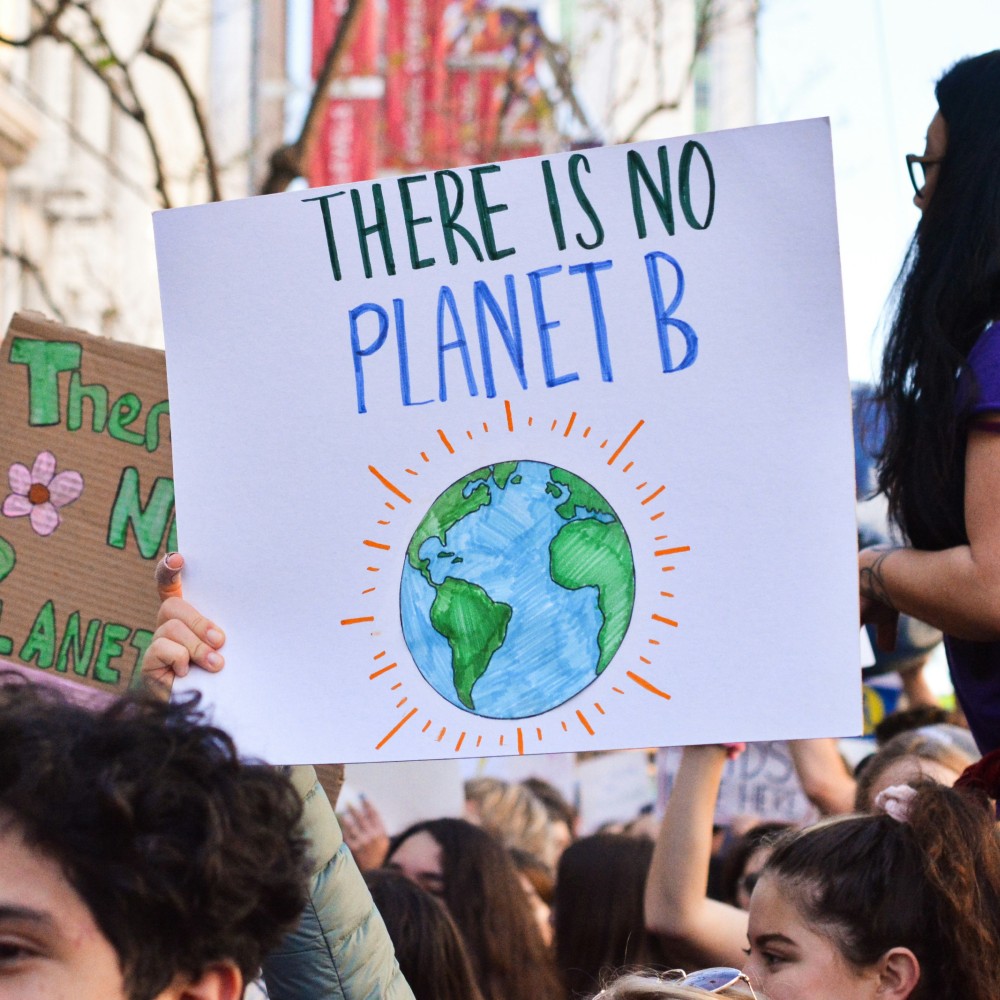Published:
In 2024, the world reached a grim milestone: the hottest year ever recorded. This announcement came during the widespread devastation caused by wildfires in Los Angeles, which burned for days, horrifying the nation. Scientists warn that the world has entered a dangerous new era of intense floods, storms, and fires, made worse by human-caused climate change.
Wildfires in Southern California are typically rare in January, which is supposed to be the area’s rainy season. Similarly, in the Fall of 2024, Hurricanes Helene and Milton devastated Florida, showcasing the increasing frequency of extreme weather patterns. These disasters are leaving communities across the globe vulnerable.
One of the underlying drivers of this crisis lies in the hidden environmental costs of everyday consumer goods. From a favorite jacket to a new smartphone or even a snack, the production and distribution of these products generate significant greenhouse gas emissions. Understanding the origins of these emissions is critical to addressing the issue. This traces back to the Industrial Revolution of the 1700s when human society began relying heavily on fossil fuels to power rapid societal changes. Burning these fossil fuels releases carbon dioxide (CO2) into the atmosphere, a greenhouse gas that traps heat from the sun and warms the planet. Today, fossil fuels are the backbone of modern society, powering factories, homes, and transportation, but their environmental costs are devastating.
Human diets also contribute significantly to climate change. As global wealth increases, so does the demand for meat, particularly farm-raised livestock like cows and sheep. During digestion, these animals emit methane, a greenhouse gas far more potent than CO2. Moreover, the world depends on energy to keep factories running, charging devices, and keeping the lights on.
In late 2023, human-caused warming triggered a historic drought in the Amazon rainforest, the worst since modern records began. Brazil, home to much of the Amazon, faces international scrutiny for its rising deforestation rates. Companies like JBS, the world’s largest meat processor, are criticized for contributing to deforestation, destroying ecosystems, and reducing the planet’s ability to absorb CO2. Despite the scale of the problem, individuals have the power to make meaningful changes. Minor lifestyle adjustments can significantly reduce emissions. For example, choosing energy and water-efficient appliances, properly insulating homes, reducing waste, and opting for greener transportation options like walking, biking, or carpooling can all make a difference.
There are ways to mitigate carbon emissions through carbon credits or carbon offsets. Carbon credits work like permission slips for emissions; for example, if a company installs solar panels, it could earn carbon credits by reducing the amount of fossil fuel-based electricity it would have otherwise consumed. When a company buys a carbon credit, usually from the government, they gain permission to generate CO2 emissions, therefore neutralizing its carbon footprint. This can provide incentives for organizations to reduce their emissions, allow countries or organizations to reduce emissions in places where it is more cost-effective, and can be tied with sustainable development, such as creating renewable energy or reforestation projects.
At the global level, international agreements like the Kyoto Protocol and the Paris Agreement have made efforts to reduce emissions. The Kyoto Protocol, the first legally binding climate treaty, required developed nations to reduce emissions by an average of 5% below 1990 levels. Building on this foundation, the Paris Agreement 2015 saw 195 countries commit to setting emissions-reduction goals. However, despite these agreements, atmospheric CO2 levels continue to rise. Some nations, such as the United States during the Trump administration, have even withdrawn from the climate commitments, prioritizing fossil fuel production over environmental protection. Meanwhile, countries like Iran, Libya, and Yemen have yet to formally approve the Paris Agreement. In the western developed world, a healthy dose of humility may be required to mediate the extreme human environmental impact. Imagine the global environment if all 7 billion people in the rest of the world aspired to (or demanded their equal right to) have the same lifestyle with a proportionate environmental footprint as residents in the developed world!, we would have no planet.
Encouragingly, some nations are taking bold steps. The European Union is aggressively moving away from coal, and the U.K recently closed its last coal-burning power plant while pledging to end new drilling licenses in the North Sea. Even Saudi Arabia, the world’s largest oil exporter, has committed to generating 50% of its electricity from renewable sources by 2023. China, while the world’s largest emitter of greenhouse gases due to its heavy reliance on coal, is also home to two-thirds of all utility-scale solar and wind projects under construction globally.
The planet is heating at an alarming rate, action at every level–individual, corporate, and governmental–is essential. Without rapid and sustained change, the devastating impacts of climate change will only worsen, threatening ecosystems, economies, and communities worldwide.
File under






